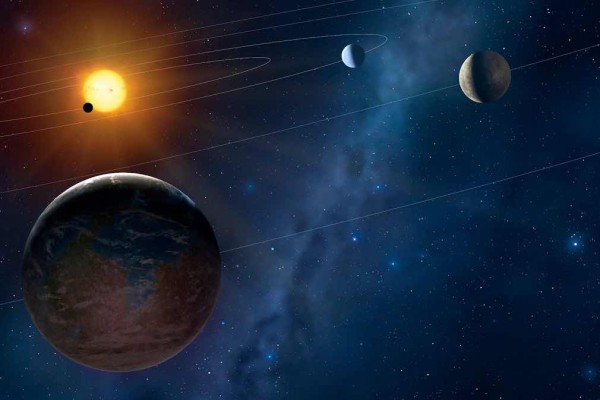 Parler
Parler Gab
Gab
Earlier astronomers have also been searching for Planet X
While Neptune was the last real planet to be discovered in 1846, many theories suggest that another planet might exist beyond the confines of the solar system. Percival Lowell, a 19th-century travel writer and businessman, proposed several theories about space – including the possibility of Planet X's existence. While he died in 1916 without ever knowing if his theory was true, he left $1 million in his will toward discovering Planet X. The Arizona-based Lowell Observatory established in 1894 kept his theory alive and continued the search for the mysterious planet. Fourteen years later on Feb. 18, 1930, a young astronomer named Clyde Tombaugh observed a small planet that later turned out to be Pluto. This was mistakenly considered to be Planet X at first. Pluto lost its planet status 76 years later after being downgraded to a dwarf planet in 2006. Another planet called Eris, which was first discovered in 2005, was also downgraded. The demotion of Pluto and Eris as possible candidates for Planet X rekindled efforts to search the planet. But physicists Jakub Scholtz and James Unwin proposed a different theory in response to the Caltech astronomers. In 2019, the two said Planet X would be so small that it would be just as big as a bowling ball. They also remarked that the object affecting the Kuiper Belt may actually be something else, such as a black hole, instead of a far-off planet. Find more space-related stories at Cosmic.news. Watch this video that talks about the search for the supposed Planet X. This video is from the Leona Wind channel on Brighteon.com.More related stories:
INTERVIEW: John Moore "The Liberty Man" warns of Planet X fly-by, pole shift, asteroid impacts and government cover-ups. New, exotic class of planets outside our solar system made out of GEMS. It took 10 years to prove: First exoplanet finally confirmed. Astronomers discover 3 galaxies from EARLY UNIVERSE. Sources include: DailyMail.co.uk SolarSystem.NASA.gov Brighteon.comStudy suggests ants can be trained to detect cancer in urine
By Zoey Sky // Share
Governments have experimented with biological warfare for decades using insects as vectors
By Lance D Johnson // Share
Antidepressants linked to rise in superbugs, study finds
By Ethan Huff // Share
Beetroot juice found to “significantly increase muscle force during exercise”
By Ethan Huff // Share
Research suggests curcumin from turmeric can help with IBD symptoms
By Zoey Sky // Share
Governments continue to obscure COVID-19 vaccine data amid rising concerns over excess deaths
By patricklewis // Share
Tech giant Microsoft backs EXTINCTION with its support of carbon capture programs
By ramontomeydw // Share
Germany to resume arms exports to Israel despite repeated ceasefire violations
By isabelle // Share










